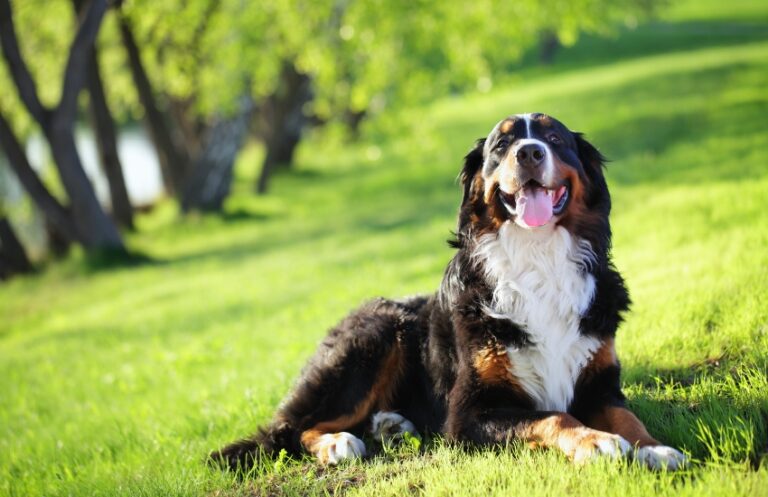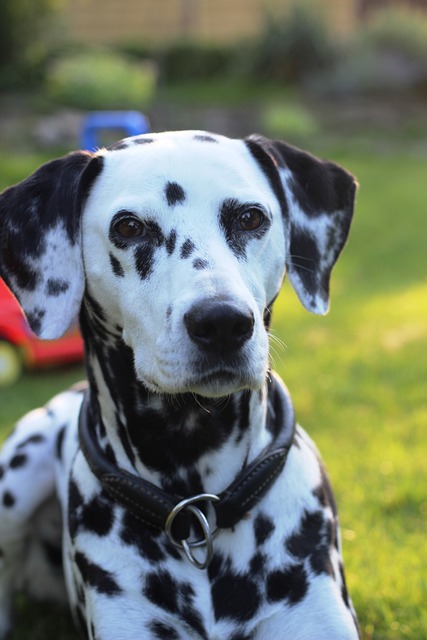Do Huskies Make Good Service Dogs? The Truth Revealed!

Do huskies make good service dogs? If you’ve ever seen a husky, you know they are stunning creatures with their icy blue eyes and majestic coat. But can they also excel in the role of a service dog? Let’s find out!
Huskies are known for their strength, intelligence, and loyalty. These traits can make them great candidates for service work. They are highly trainable and can be taught various tasks to assist individuals with disabilities or special needs.
In this article, we will explore the qualities that make huskies suitable for service work, the specific tasks they can perform, and some considerations to keep in mind before choosing a husky as your service dog. So, whether you’re considering getting a husky as a service animal or simply curious about their capabilities, keep reading to discover if huskies indeed make good service dogs!
Qualities of a Good Service Dog
- Trainability: A good service dog should be highly trainable and capable of learning and following commands consistently.
- Good Temperament: Service dogs must have a calm and stable temperament, as they will be working in various environments and interacting with different individuals.
- Focus and Attention: Service dogs need to be able to remain focused on their tasks and ignore distractions in their surroundings.
- Reliability: A reliable service dog consistently performs their tasks and obeys commands, even in challenging situations.
- Physical Fitness: Service dogs should be in good physical health and have the stamina to perform their duties without fatigue or discomfort.
- Empathy and Sensitivity: A good service dog should be able to empathize with their handler’s needs and exhibit sensitivity towards their emotions and physical condition.
- Adaptability: Service dogs need to be adaptable to different environments and situations, as they may accompany their handlers to various public places.
- Alertness: Service dogs should be alert and attentive to their surroundings, ready to respond to their handler’s needs or potential danger.
- Problem-Solving Skills: A good service dog should possess problem-solving skills to navigate obstacles or find alternative ways to accomplish tasks.
- Good Social Skills: Service dogs must have good social skills, including being comfortable around people and other animals, and reacting appropriately to interactions.
These qualities are essential for service dogs to effectively assist individuals with disabilities and perform their designated tasks. The selection and training process for service dogs are rigorous to ensure that they possess these qualities and meet the specific needs of their handlers.
Pros and Cons of Using Huskies as Service Dogs
Pros of Using Huskies as Service Dogs
Huskies can offer several advantages when used as service dogs for individuals with specific needs. Here are some of the pros:
- Strong Pulling Power: Huskies are known for their strength and pulling power, which can be beneficial for tasks such as mobility assistance or pulling a wheelchair.
- Highly Intelligent: These dogs are intelligent and can be trained to perform a wide range of tasks, making them versatile service dogs.
- Endurance and Stamina: Huskies have excellent endurance and stamina, allowing them to engage in long working hours or tasks that require physical exertion.
- Alertness and Protective Instincts: Huskies are naturally alert and have a protective instinct, which can be advantageous for individuals who require assistance with personal safety.
Cons of Using Huskies as Service Dogs
While huskies possess certain desirable traits, there are also potential drawbacks to consider when using them as service dogs:
- Independent Nature: Huskies are known for their independent nature and may be less inclined to be obedient or follow commands compared to some other breeds.
- High Exercise Needs: These dogs have high energy levels and require extensive exercise and mental stimulation. Failing to meet their exercise requirements can lead to behavioral issues or a decrease in their overall well-being.
- Cold Weather Adaptability: Huskies are well-adapted to cold weather conditions, but they may not be suitable for individuals residing in warmer climates or environments.
- Maintaining Coat and Shedding: Huskies have a thick double coat that requires regular grooming and shedding can be a significant issue.
When considering huskies as service dogs, it is essential to weigh these pros and cons and evaluate whether their traits align with the specific needs and lifestyle of the individual requiring assistance. Additionally, proper training, socialization, and ongoing care are critical for ensuring the success of using huskies as service dogs.
Training Requirements for Huskies as Service Dogs
Huskies are a breed known for their intelligence, strength, and endurance, making them potential candidates for service dog roles. However, training a Husky to become a service dog requires specific considerations and requirements. Here are the key training requirements for Huskies aspiring to be service dogs:
Evaluation of Temperament and Personality
Before starting service dog training, it is essential to evaluate the temperament and personality traits of the Husky. Service dogs need to possess qualities such as calmness, focus, and the ability to remain composed in various situations. Evaluating a Husky’s suitability for service dog training helps determine if the individual dog has the desired traits necessary for the role.
Obedience Training
Obedience training is a fundamental aspect of service dog training for Huskies. Huskies can have independent and stubborn tendencies, so teaching them basic commands like sit, stay, come, and heel is crucial. Obedience training helps establish a strong foundation for further specialized training and ensures that the Husky can follow instructions reliably in different environments and situations.
Task-Specific Training
Service dogs are trained to perform specific tasks to assist individuals with disabilities or medical conditions. Huskies can be trained to perform a wide range of tasks, depending on the individual’s needs and requirements. This could include tasks such as retrieving items, opening doors, providing stability and balance support, alerting to medical emergencies, or guiding individuals with visual impairments. Task-specific training involves teaching Huskies the necessary skills and behaviors to perform their designated tasks reliably and accurately.
Public Access Training
Service dogs are expected to behave appropriately and remain well-behaved in public settings. Public access training focuses on teaching Huskies how to navigate various environments, including crowded spaces, public transportation, and other challenging situations. It involves socialization with different people, animals, and distractions, as well as desensitization to loud noises or sudden movements. Public access training ensures that Huskies can remain calm, focused, and non-disruptive while providing assistance to their handlers.
Team-Building and Bonding
Building a strong bond and connection between the Husky and their handler is crucial for successful service dog partnerships. Training programs often incorporate activities and exercises that promote trust, communication, and teamwork between the Husky and their handler. Team-building exercises help strengthen the working relationship and ensure effective collaboration between the service dog and their handler in different scenarios.
Training a Husky to become a service dog requires time, dedication, and expertise. It is recommended to seek professional assistance from experienced trainers or organizations specializing in service dog training to ensure the best results. Each Husky is unique, and training approaches may need to be tailored to their individual needs and abilities. With proper training and guidance, Huskies can excel as service dogs and provide invaluable support to individuals in need.
Physical Abilities of Huskies for Service Work
- Huskies have exceptional endurance, allowing them to perform physically demanding tasks for extended periods of time.
- They possess great strength, which enables them to pull heavy loads or assist individuals with mobility challenges.
- Huskies have a high tolerance for cold weather, making them well-suited for tasks in winter conditions or colder climates.
- They are agile and have good coordination, making them adept at navigating various terrains and obstacles.
- Huskies have a keen sense of smell and hearing, which can be valuable in search and rescue operations or detecting potential dangers.
- They are highly trainable and eager to please, making them suitable candidates for service work tasks that require obedience and responsiveness.
- Huskies have a friendly and social nature, making them well-suited for providing emotional support and companionship to individuals in need.
Different Types of Service Work Suitable for Huskies
Huskies are known for their strength, endurance, and ability to work in extreme conditions. These traits make them well-suited for various types of service work. Whether it’s assisting individuals with disabilities, providing therapy, or performing search and rescue missions, Huskies can excel in different service roles. Here are some examples of service work suitable for Huskies:
- Guide Dogs: Huskies can be trained as guide dogs to assist individuals with visual impairments. Their intelligence, focus, and ability to navigate different environments make them excellent guide dogs.
- Therapy Dogs: With their gentle and friendly nature, Huskies can offer emotional support and therapeutic benefits to individuals in hospitals, nursing homes, and other healthcare settings.
- Sled Dogs: Huskies have a long history of pulling sleds in snowy terrains. They are well-known for their strength and endurance, making them ideal for sled dog racing or providing transportation in remote areas.
- Search and Rescue Dogs: Due to their strong sense of smell, agility, and stamina, Huskies can be trained for search and rescue missions. They can locate missing persons in various environments, including wilderness or disaster situations.
- Assistance Dogs: Huskies can be trained as assistance dogs to help individuals with physical disabilities. They can perform tasks such as opening doors, retrieving objects, and providing stability for those with mobility challenges.
It’s essential to remember that training and temperament assessments are crucial when considering Huskies for service work. Not all Huskies may possess the required traits or be suitable for specific service roles. Proper training, socialization, and obedience are key factors in ensuring Huskies can perform their service duties effectively and safely.
Considerations for Huskies’ Exercise and Mental Stimulation Needs
Importance of Regular Exercise for Huskies
Huskies are a breed known for their high energy levels, and regular exercise is essential for their physical and mental well-being. Engaging in physical activities helps prevent behavioral issues caused by pent-up energy, promotes a healthy weight, and strengthens the bond between you and your Husky. Aim for at least 60 minutes of exercise per day, which can include walks, runs, hikes, or playing fetch.
Providing Mental Stimulation through Enrichment Activities
Along with physical exercise, Huskies also require mental stimulation to prevent boredom and destructive behaviors. Incorporating enrichment activities into their daily routine can help keep their minds sharp and satisfied. Consider puzzle toys, interactive feeders, obedience training, and scent games to challenge your Husky’s problem-solving skills and provide mental engagement.
Creating a Structured Routine for Exercise and Stimulation
Establishing a structured routine for exercise and mental stimulation is beneficial for Huskies. Dogs thrive on consistency and predictability, so having designated times for exercise and enrichment activities can help them feel more secure and satisfied. Additionally, varying the types of activities and incorporating new challenges keeps them engaged and excited about their daily routine.
Adapting Exercise and Stimulation to Individual Husky Needs
It’s important to consider your individual Husky’s age, health, and energy levels when planning their exercise and mental stimulation. Puppies may have shorter bursts of exercise throughout the day, while older Huskies may require modifications to accommodate any mobility limitations. Consulting with a veterinarian or animal behaviorist can help you tailor the exercise and stimulation plan to your Husky’s specific needs.
Conclusion
Considering the qualities and characteristics of huskies, they can indeed make good service dogs in certain roles. They possess traits such as strength, endurance, intelligence, and an ability to work in extreme conditions, which make them valuable assets in tasks like guiding individuals with visual impairments, providing therapy and emotional support, or performing search and rescue missions.
However, it is important to note that huskies may not be suitable for every service dog role or individual. Their independent nature, high exercise needs, and adaptability to cold weather conditions are factors that must be taken into account when considering them as service dogs. Proper training, socialization, and ongoing care are crucial to ensure their success as service dogs.




